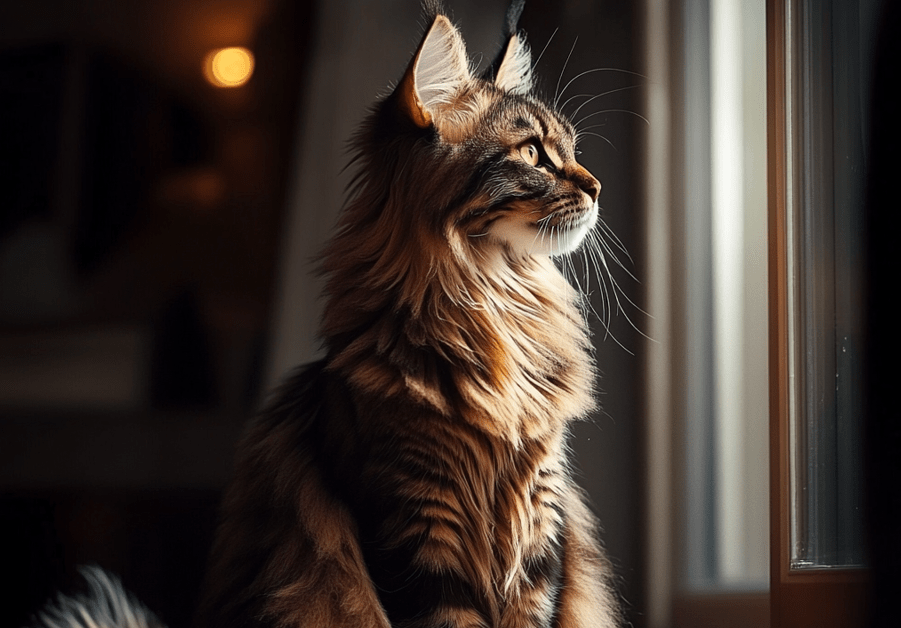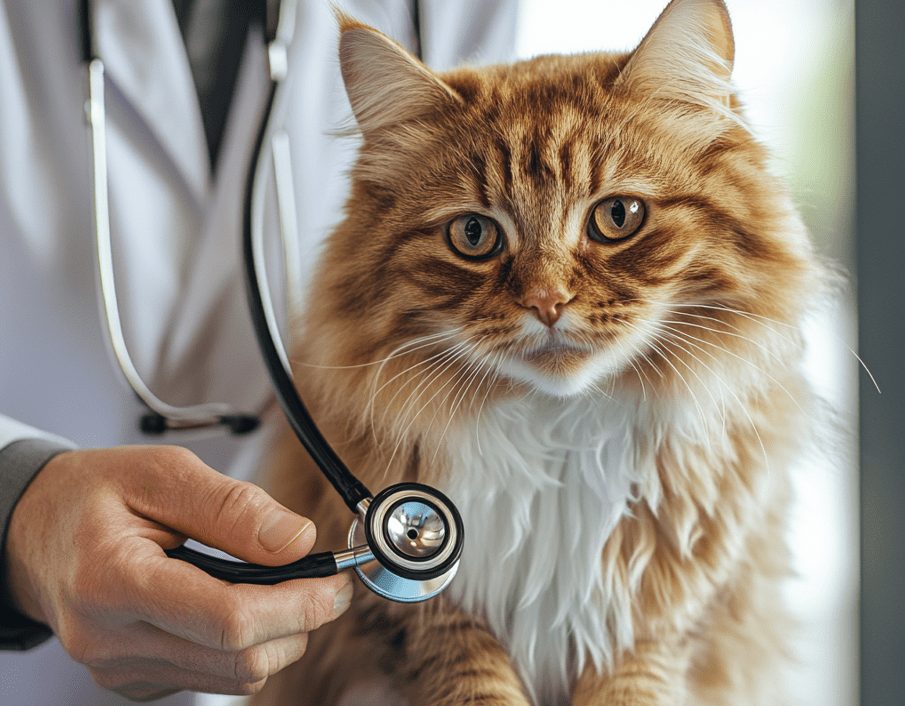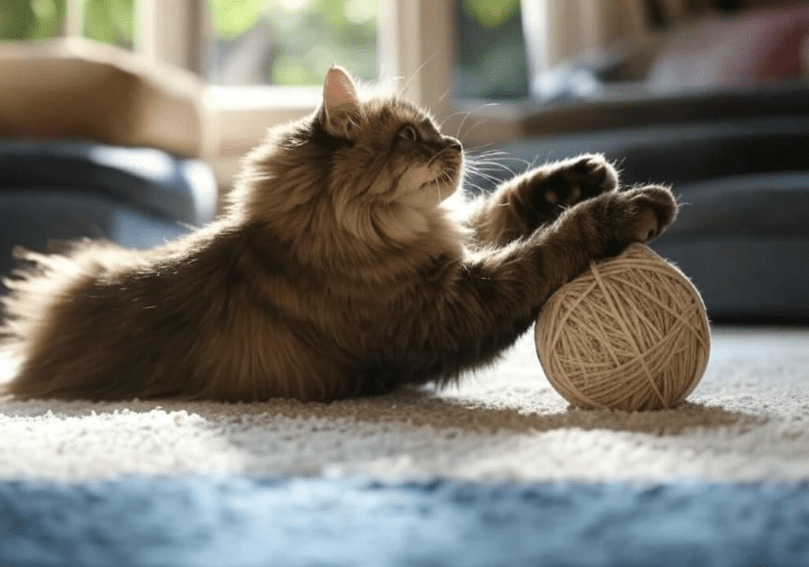
Maine Coon cats, known for their majestic size, tufted ears, and friendly personalities, are a beloved breed among cat enthusiasts. These gentle giants require dedicated care to maintain their health, and one critical yet often overlooked aspect is dental care. Proper Maine Coon dental care is essential to prevent gum disease, tooth decay, and other oral health issues that can impact their quality of life. This comprehensive guide explores the importance of dental care for Maine Coon cats, offering practical tips, expert insights, and actionable advice to keep your feline friend’s teeth and gums in top condition.
Why Dental Care Matters for Maine Coon Cats
Maine Coons are prone to specific dental issues due to their large size, unique jaw structure, and genetic predispositions. Gum disease, also known as periodontal disease, is a common problem in cats, with studies showing that up to 70% of cats over three years old suffer from some form of dental disease. For Maine Coons, the stakes are even higher, as their large teeth and spacious mouths can harbor bacteria, leading to plaque buildup, gingivitis, and advanced periodontitis if left untreated.
Neglecting dental care can result in pain, tooth loss, and systemic health problems, as bacteria from the mouth can enter the bloodstream and affect organs like the heart, kidneys, and liver. By prioritizing Maine Coon dental care, you can enhance your cat’s overall well-being, extend their lifespan, and ensure they remain playful and happy.
Key Dental Issues in Maine Coon Cats
Gingivitis: Inflammation of the gums caused by plaque buildup. Symptoms include red, swollen gums and bad breath.
Periodontitis: Advanced gum disease that damages the tissues and bones supporting the teeth, potentially leading to tooth loss.
Tooth Resorption: A painful condition where the cat’s body breaks down and absorbs tooth structure, common in older Maine Coons.
Stomatitis: A severe inflammatory condition affecting the gums and mouth, often requiring medical intervention.
Understanding these conditions is the first step in preventing them. Let’s dive into how to maintain your Maine Coon’s dental health effectively.
Daily Dental Care Routine for Maine Coon Cats
Establishing a consistent dental care routine is the cornerstone of preventing gum disease in Maine Coon cats. Here are practical steps to incorporate into your cat’s daily life:
1. Brushing Your Maine Coon’s Teeth
Brushing is the gold standard for Maine Coon dental care. While it may seem daunting, with patience and the right tools, most cats can adapt to regular brushing.
Choose the Right Tools: Use a soft-bristled cat toothbrush or a finger brush designed for pets. Pair it with enzymatic cat toothpaste in flavors like poultry or fish—never use human toothpaste, as it contains ingredients toxic to cats.
Start Slowly: Introduce brushing gradually. Let your Maine Coon sniff the toothbrush and taste the toothpaste. Begin by gently touching their gums with your finger, then progress to short brushing sessions.
Technique: Focus on the outer surfaces of the teeth, where plaque tends to accumulate. Brush in small, circular motions for 30 seconds to a minute, ideally daily or at least three times a week.
Reward Your Cat: Offer treats or praise after brushing to create a positive association.
2. Dental Treats and Chews
Dental treats and chews can complement brushing by reducing plaque and tartar buildup. Look for products approved by the Veterinary Oral Health Council (VOHC), which evaluates their effectiveness.
Greenies Feline Dental Treats: These are a popular choice for Maine Coons, as they’re formulated to clean teeth and freshen breath.
Raw Bones or Dental Toys: Chewing on raw bones (under supervision) or dental toys can help scrape plaque from teeth. Ensure bones are appropriately sized to avoid choking hazards.
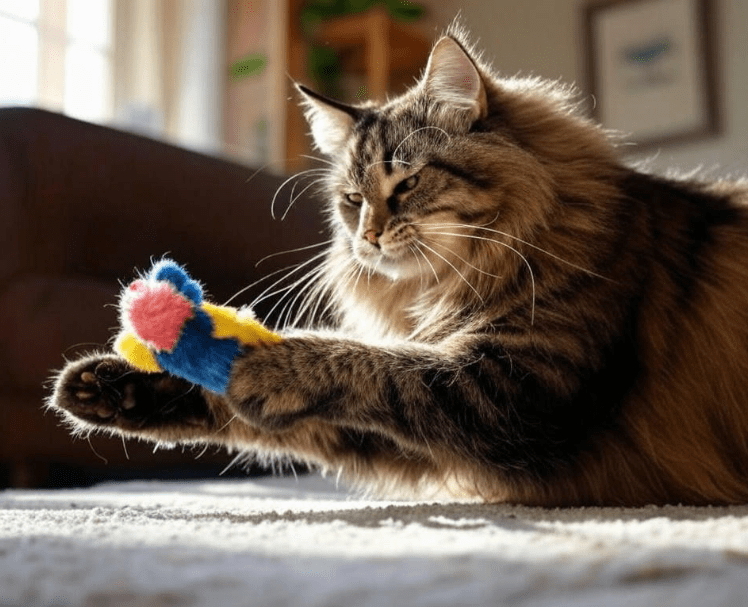
3. Water Additives and Oral Rinses
Water additives and oral rinses are easy-to-use options for busy Maine Coon owners. These products contain enzymes or antiseptics that reduce bacteria in the mouth.
How to Use: Add the recommended amount to your cat’s drinking water or apply an oral rinse directly to their gums using a syringe or applicator.
Popular Products: Brands like TropiClean and Oxyfresh offer cat-safe water additives that promote oral health.
4. Dental Diets
Specially formulated dental diets can help reduce plaque and tartar in Maine Coon cats. These foods have a unique kibble shape and texture that encourages chewing, mechanically cleaning the teeth.
Recommended Brands: Hill’s Prescription Diet t/d and Royal Canin Dental are VOHC-approved options that support dental health.
Consult Your Vet: Before switching to a dental diet, consult your veterinarian to ensure it meets your Maine Coon’s nutritional needs, especially if they have other health conditions.
Professional Veterinary Dental Care
While home care is vital, professional veterinary dental cleanings are essential for maintaining your Maine Coon’s oral health. Here’s what to expect:
1. Annual Dental Checkups
Schedule annual veterinary checkups to monitor your Maine Coon’s dental health. Your vet will examine their teeth and gums, looking for signs of gingivitis, tartar buildup, or other issues. Early detection can prevent minor problems from escalating.
2. Professional Cleanings
Veterinary dental cleanings, performed under anesthesia, involve scaling and polishing the teeth to remove plaque and tartar. For Maine Coons, cleanings may be recommended every 1–2 years, depending on their dental health.
Pre-Cleaning Tests: Your vet may perform bloodwork to ensure your cat is healthy enough for anesthesia.
Procedure: The vet uses ultrasonic tools to clean above and below the gumline, followed by polishing to smooth the teeth and reduce future plaque buildup.
Post-Cleaning Care: Your vet may prescribe antibiotics or pain relief if any extractions or treatments were performed.
3. Addressing Dental Diseases
If your Maine Coon develops gum disease or other dental issues, your vet may recommend treatments such as:
Antibiotics: To treat bacterial infections in the gums.
Extractions: For severely damaged or resorbed teeth.
Specialized Treatments: For conditions like stomatitis, immunosuppressive drugs or laser therapy may be used.
Preventing Gum Disease in Maine Coon Cats
Preventing gum disease requires a proactive approach that combines home care, professional veterinary support, and lifestyle adjustments. Here are additional strategies to keep your Maine Coon’s gums healthy:
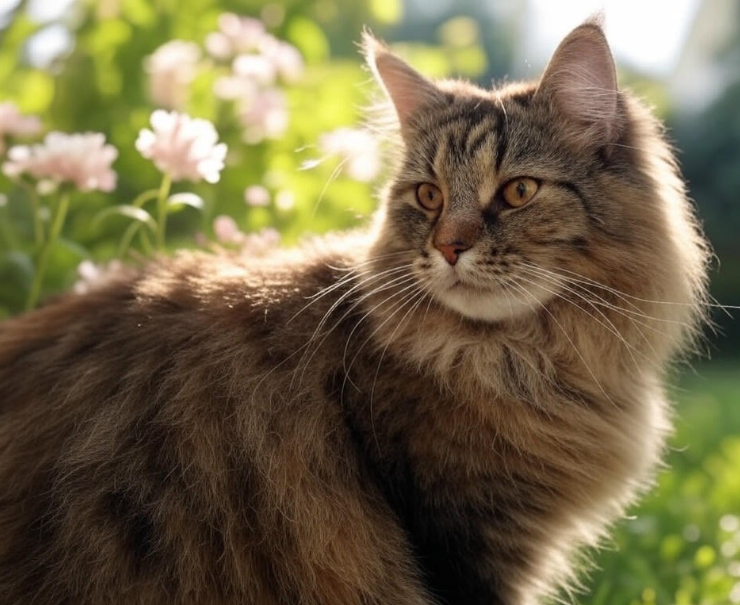
1. Monitor for Warning Signs
Regularly check your Maine Coon’s mouth for signs of dental problems. Common symptoms include:
-
Bad breath (halitosis)
-
Red, swollen, or bleeding gums
-
Difficulty eating or dropping food
-
Excessive drooling
-
Pawing at the mouth
-
Loose or missing teeth
If you notice any of these signs, contact your veterinarian promptly for an evaluation.
2. Maintain a Healthy Diet
A balanced diet supports overall health, including dental health. Feed your Maine Coon high-quality, nutritionally complete cat food that meets AAFCO guidelines. Avoid sugary treats or human foods, which can contribute to plaque buildup.
3. Manage Stress
Stress can exacerbate dental issues like stomatitis in Maine Coon cats. Provide a stimulating environment with toys, scratching posts, and climbing trees to keep your cat mentally and physically active. Regular playtime also strengthens your bond, making dental care routines easier.
4. Genetic Considerations
Some Maine Coons may have a genetic predisposition to dental issues. If you’re adopting a Maine Coon, ask the breeder about the cat’s dental history and any hereditary conditions. Early awareness allows you to take preventive measures from kittenhood.
Special Considerations for Maine Coon Kittens
Starting dental care early sets the foundation for lifelong oral health. Here’s how to care for your Maine Coon kitten’s teeth:
Introduce Brushing Early: Begin brushing when your kitten is 8–12 weeks old to get them accustomed to the process.
Use Kitten-Safe Products: Choose toothbrushes and toothpaste designed for kittens, as their mouths are smaller and more sensitive.
Monitor Teething: Maine Coon kittens teethe between 3–6 months. Provide safe chew toys to soothe their gums and discourage destructive chewing.
Schedule a Vet Visit: Have your kitten’s teeth checked during their first veterinary visit to establish a baseline for their dental health.
Common Myths About Maine Coon Dental Care
Misinformation can hinder proper dental care. Let’s debunk some common myths:
Myth: Cats don’t need dental care because they clean their own teeth.
Fact: While cats groom themselves, they cannot remove plaque or prevent gum disease without human intervention.
Myth: Dry food alone keeps a cat’s teeth clean.
Fact: While dental diets can help, they’re not a substitute for brushing or professional cleanings.
Myth: Dental issues only affect older cats.
Fact: Dental problems can start as early as one year of age, especially in breeds like Maine Coons.
Conclusion
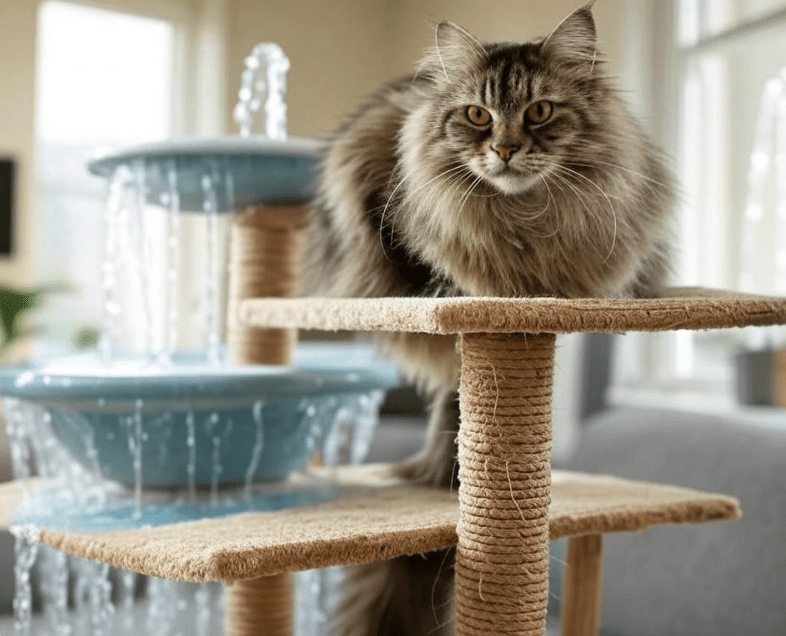
Maine Coon dental care is a critical aspect of ensuring your cat’s long-term health and happiness. By implementing a daily dental routine, scheduling regular veterinary checkups, and staying vigilant for signs of gum disease, you can prevent painful dental issues and enhance your Maine Coon’s quality of life. From brushing techniques to professional cleanings, this guide provides the tools and knowledge you need to keep your big cat’s smile bright and healthy. Start today, and your Maine Coon will thank you with purrs and playfulness for years to come.

